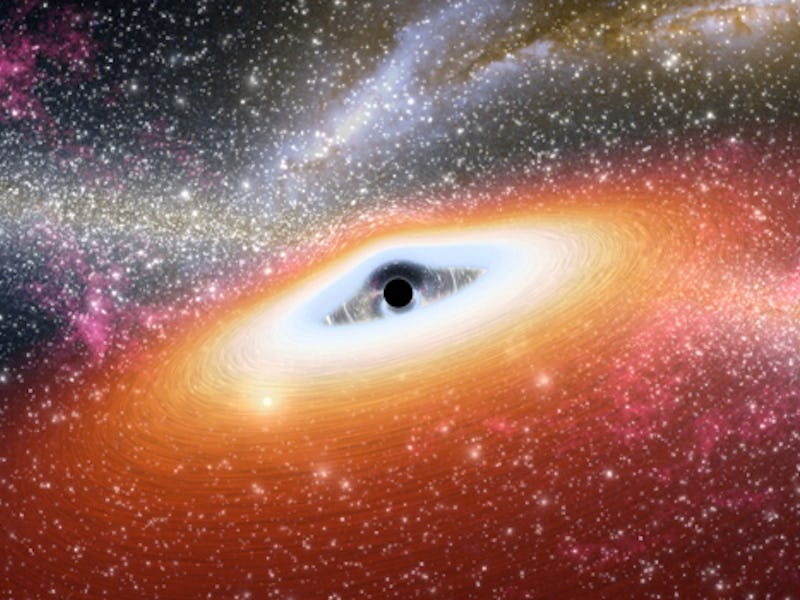When you remember there’s a supermassive black hole at the center of our galaxy (and many others), it’s hard to think about anything else. But new research takes this one step further, suggesting these giant black holes could have a bizarre influence on other black holes and thus, the gravitational waves we’re able to detect on Earth.
Using a statistical probability method called a Monte Carlo simulation, Joseph Fernandez, a Ph.D. student at Liverpool John Moores University, has found that supermassive black holes can cause all sorts of cosmic tomfoolery. His calculations suggest that black hole binaries — which orbit together — can be influenced by the gravity of a supermassive black hole at a galaxy’s center if the binary gets close enough to the monster hole. Fernandez will present his research on April 3 at the European Week of Astronomy and Space Science.
Fernandez’s work suggests the gravitational fields from supermassive black holes are so powerful they can “flip” the orbital path of a black hole binary. This gets into really complicated physics, so let’s put it this way: Two people are walking down a street. An angry cyclist — taking his exercise far too seriously — pulls up next to them and demands they walk the opposite way. Frightened and kind of pissed off, the pedestrians walk back in the opposite direction. This is a very dramatic and overly simplified version of how a supermassive black hole can impact a black hole binary, but you get the point.
Sagittarius A*, taken by NASA's Chandra X-Ray Observatory
In the last few years, scientists have been able to analyze gravitational waves detected by the LIGO and Virgo collaborations. Gravitational waves, or ripples in the fabric of space-time, can come from binary black hole mergers — it’s a phenomenon predicted by Einstein, but only observed for the first time in 2015.
According to Fernandez, it’s possible Sagittarius A*, the supermassive black hole at the center our galaxy, could be influencing other black holes around it. Thankfully, we’ll never actually have to witness this cosmic horror first-hand — we can just read about it from the safety of the internet.
